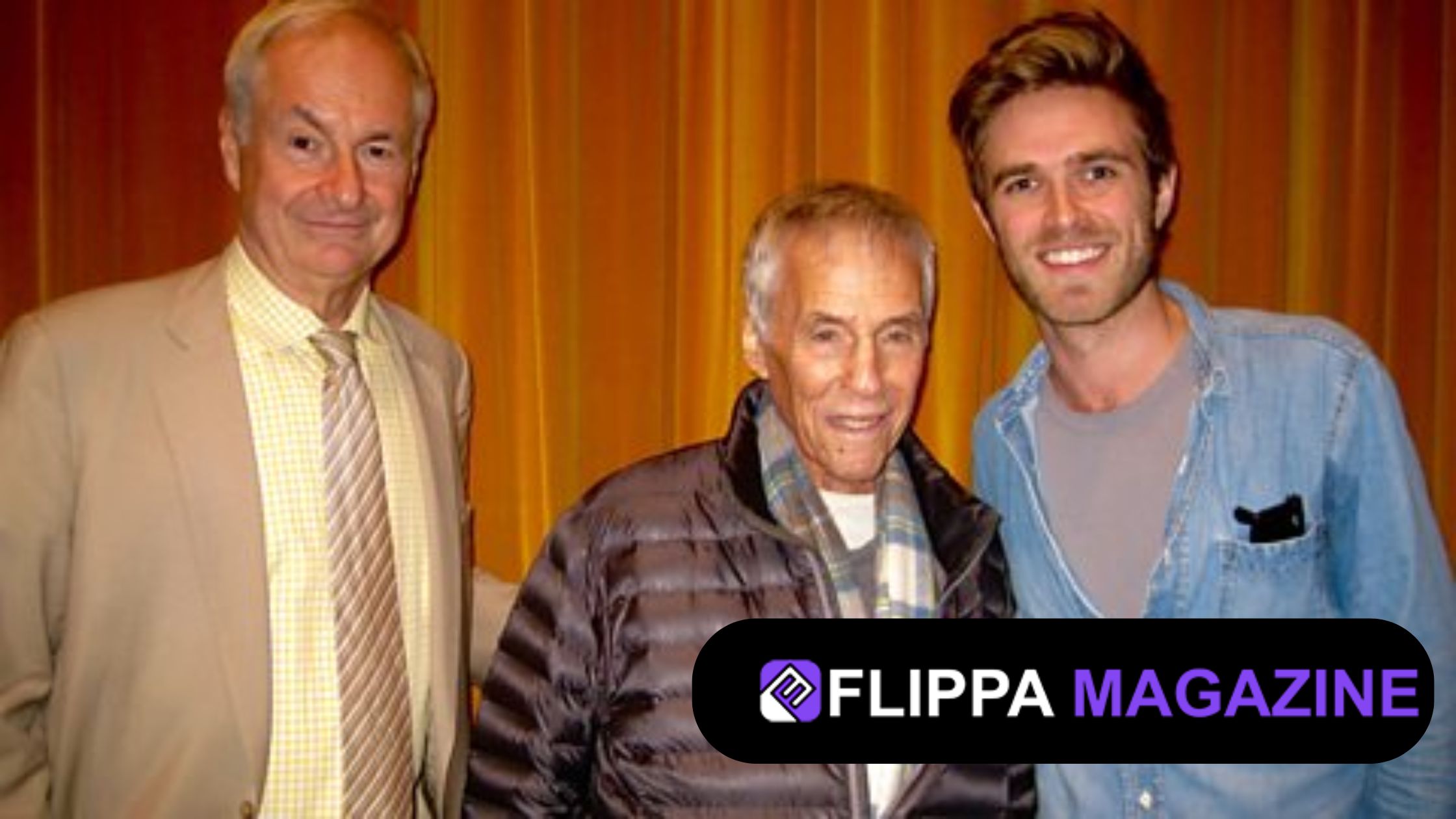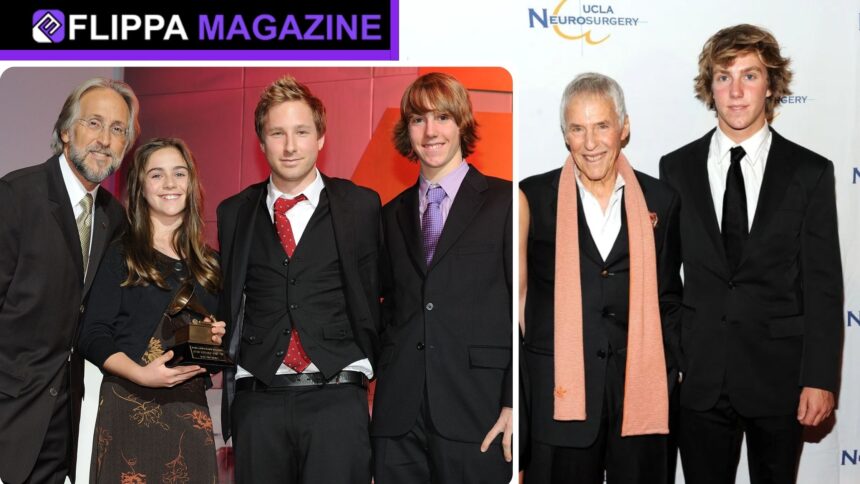In the world of music, few names carry the timeless resonance of Burt Bacharach—a composer and songwriter whose melodies defined generations. Yet, behind the success, awards, and orchestral brilliance lay a deeply personal story that seldom reached the spotlight—the life and loss of Cristopher Bacharach, Burt’s son. For a man celebrated for crafting songs about love, loss, and vulnerability, the tragedy surrounding his son was a chapter that profoundly shaped both his music and his humanity.
This article takes a heartfelt look at Cristopher Bacharach’s life, the family that loved him, and how his journey became one of the most personal and transformative stories in Burt Bacharach’s legacy. Through a biographical lens, we explore not just what happened, but why this story remains so vital to understanding the man behind the music.
Quick Bio Table: Burt Bacharach & Cristopher Bacharach
| Aspect | Details |
|---|---|
| Full Name | Cristopher Elton Bacharach |
| Father | Burt Freeman Bacharach |
| Mother | Angie Dickinson (American actress) |
| Date of Birth | Born in 1966, Los Angeles, California |
| Early Life | Raised in Los Angeles under the spotlight of fame |
| Known For | Being the son of iconic composer Burt Bacharach |
| Health Challenges | Lived with Asperger’s syndrome (autism spectrum disorder) |
| Education | Attended various specialized institutions for developmental support |
| Tragic Event | Passed away in 2007 at the age of 40 |
| Legacy | Inspired a deeper emotional dimension in Burt Bacharach’s later work |
| Father’s Reflection | Burt opened up about Cristopher’s struggles in later interviews and music |
.
A Family Under the Spotlight
The marriage between Burt Bacharach and Angie Dickinson was one of Hollywood’s most talked-about unions in the 1960s. He, the sophisticated composer behind timeless hits like Raindrops Keep Fallin’ on My Head; she, the glamorous actress celebrated for her role in Police Woman. Together, they seemed the epitome of elegance and artistic excellence. When Cristopher Bacharach was born, it appeared that their world was complete—a perfect blend of music and cinema embodied in one family.
However, the glow of fame often hides quiet struggles. As Cristopher grew, his parents noticed developmental challenges. He was eventually diagnosed with Asperger’s syndrome, a condition that, at the time, was far less understood than it is today. Angie and Burt sought help from doctors and educators, but navigating parenthood under the scrutiny of fame made an already difficult situation even more isolating.
The Hidden Challenges of Growing Up Different
Cristopher’s childhood was marked by moments of deep sensitivity and confusion. In interviews, Angie Dickinson described her son as bright, musically gifted, and profoundly intuitive—but also painfully aware of how different he felt from other children. This emotional duality made social life difficult for him, often leading to frustration and isolation.
During the 1970s and 1980s, public understanding of autism spectrum disorders was limited. The stigma surrounding neurodiversity often left families to fend for themselves. Angie and Burt, despite their resources, struggled to find proper support for Cristopher. Burt once admitted that being a father to a child with such unique needs reshaped his entire understanding of love and patience.
In this way, Cristopher Bacharach’s journey mirrored the private complexities that many families experience—balancing hope with heartbreak, and progress with pain.
Music as Emotional Catharsis

For Burt Bacharach, music had always been his language of expression. But after becoming a father, it evolved into something deeper—a tool for reflection and healing. Many of his compositions from the late 1970s onward carried a more introspective tone. Songs like A House Is Not a Home and One Less Bell to Answer resonated with emotional undercurrents that extended beyond romance—they echoed themes of loneliness and empathy.
Although Burt rarely discussed Cristopher publicly during his son’s lifetime, many close to him believed that the emotional texture of his later works was deeply influenced by the silent weight of parenthood. The pain of watching his child struggle became both his burden and his muse, weaving vulnerability into melodies that comforted millions.
Angie Dickinson’s Strength and Motherhood
Angie Dickinson, known for her poise on-screen, faced one of life’s hardest roles off-screen—a mother devoted to her child’s well-being. Friends often described her as fiercely protective of Cristopher, ensuring that he received every opportunity to thrive despite his challenges.
At a time when mental health was rarely discussed openly, Angie’s advocacy for her son broke barriers. She prioritized Cristopher’s comfort over her own career, stepping away from major projects to be a present and supportive mother. In later interviews, Angie reflected that her greatest heartbreak wasn’t fame fading, but watching her son face a world that didn’t yet understand him.
The Strain on a Marriage and Family Bonds
Burt Bacharach’s demanding schedule and perfectionism—qualities that fueled his success—also added tension at home. The emotional strain of parenting a child with special needs tested the couple’s relationship. After 15 years of marriage, Burt and Angie divorced in 1981, though they remained connected through their shared love and concern for Cristopher.
Even after their separation, they worked together to provide him stability. Burt’s later reflections suggested he carried guilt over not being present enough during his son’s formative years—a sentiment echoed in his memoirs and interviews.
Cristopher Bacharach’s Later Years and Tragic Passing
As Cristopher entered adulthood, he continued to face emotional and developmental struggles. Despite his intelligence and musical instincts, he found it difficult to navigate independence. With ongoing mental health challenges, Cristopher lived under care and supervision for much of his adult life.
Tragically, in 2007, Cristopher Bacharach took his own life at the age of 40. The loss was devastating for both of his parents. For Burt Bacharach, the pain resurfaced memories of a lifetime spent composing songs about human fragility—but now, the sorrow was personal and irreversible.
How the Loss Shaped Burt Bacharach’s Later Music
After Cristopher’s death, Burt Bacharach’s music entered a new, profoundly reflective era. His later works became stripped of commercial ambition and instead centered on emotional truth. The composer often described feeling as though his heart had been “permanently tuned to a minor key.”
One poignant example is his collaboration with lyricist Tonio K on At This Time (2005), a politically and emotionally charged album that revealed a more introspective Burt. Though recorded before Cristopher’s passing, the tone foreshadowed the emotional reckoning to come. Many critics view his later projects as musical conversations with grief—a way to process the unspeakable.
Lessons on Parenthood and Compassion

Cristopher’s story isn’t just a tale of tragedy—it’s a reminder of how love persists through imperfection. For Burt and Angie, their son’s life taught them compassion, patience, and the importance of understanding neurodiversity.
In a society that often idealized fame and perfection, their family story humanized both icons. It showed that even the most glamorous lives are touched by struggle, and that empathy often grows from heartbreak.
The legacy of Cristopher Bacharach continues not in headlines, but in the emotional honesty that permeates his father’s music—a quiet, enduring tribute to a son who lived and felt deeply.
Burt Bacharach’s Emotional Healing Through Legacy
Over time, Burt began to speak more openly about Cristopher’s struggles, helping destigmatize conversations around mental health and autism. In doing so, he transformed personal loss into social empathy.
He also funded music therapy initiatives and participated in awareness campaigns supporting children with developmental challenges. For Burt, music remained the bridge between memory and healing—proof that art can carry forward love that words can no longer express.
One Paragraph with Bullet Points: The Impact of Cristopher’s Life
Cristopher Bacharach’s life, though private, left several lasting influences on those closest to him and beyond:
-
Emotional depth in art: Burt Bacharach’s later compositions reflect themes of vulnerability and parental love.
-
Awareness of autism: Angie Dickinson’s openness encouraged greater understanding of children on the spectrum.
-
Legacy of compassion: The Bacharach family’s story continues to inspire empathy and mental health awareness today.
These subtle yet powerful impacts transformed a personal tragedy into a message of hope and humanity.
Final Thoughts
The story of Cristopher Bacharach is not just about loss—it’s about love that transcends pain. His life shaped his parents in ways that ultimately touched millions through music. For Burt Bacharach, each note carried the echo of a father’s heartache and a son’s quiet courage.
Understanding what happened to Cristopher Bacharach helps us see Burt Bacharach not just as a musical genius, but as a human being who turned sorrow into song. It’s a reminder that behind even the most celebrated lives are stories that define their deepest truths.
Frequently Asked Questions (FAQs)
1. Who was Cristopher Bacharach?
Cristopher Bacharach was the son of legendary composer Burt Bacharach and actress Angie Dickinson. He was born in 1966 and lived with Asperger’s syndrome, which shaped much of his life’s journey.
2. What happened to Cristopher Bacharach?
Cristopher struggled with mental health challenges throughout his life and tragically passed away in 2007 at the age of 40.
3. How did Cristopher’s life influence Burt Bacharach’s music?
Cristopher’s struggles deeply influenced Burt’s later compositions, infusing his music with emotional depth, introspection, and compassion.
4. Did Burt Bacharach ever speak publicly about his son’s struggles?
Yes. In later years, Burt became more open about Cristopher’s condition and how it impacted his understanding of love, patience, and artistry.
5. What was Cristopher Bacharach’s relationship like with his mother, Angie Dickinson?
Angie was deeply devoted to her son and prioritized his well-being above her acting career, offering constant care and advocacy.
6. How did Cristopher’s story affect public awareness of autism?
Though private, the Bacharach family’s experiences helped shed light on the realities of raising a child on the autism spectrum, particularly during a time of limited public understanding.
7. What legacy did Cristopher Bacharach leave behind?
His life inspired emotional authenticity in his father’s later works and continues to symbolize the enduring power of love, empathy, and awareness.
FOR MORE : FLIPPAMAGAZINE












